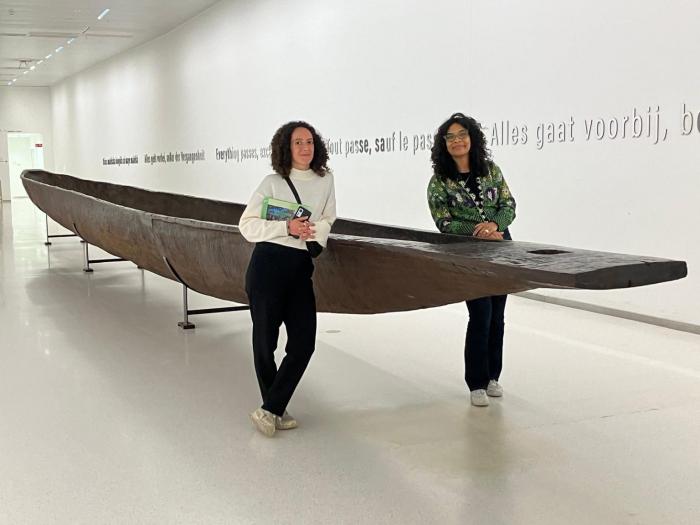The Conciliare project is one year old!

In March 2024, the European Conciliare (Confidently Changing Colonial Heritage) project began, focusing on the legacy of the colonial past. It brings together six countries (Belgium, Netherlands, Portugal, Italy, Finland and Croatia) and researchers from different disciplines (social psychologists, anthropologists, sociologists, political scientists and historians), as well as associations such as ICOM Belgique-Wallonie/Bruxelles and the Afropean Project. One year after its launch meeting, the project now has its own website - The project - CONCILIARE - which will enable everyone to follow the progress of the different groups, including through a newsletter.
On March 19 and 20, 2025, all the partners met in Zagreb to discuss the state of research and the challenges ahead.
Comparative dimensions
This project's originality comes from its comparative dimension. Each Workpackage - WP - (“School Textbooks”, “Public Space”, “Museums”, “Culture & Traditions”) associates different countries, most with a colonial past and others without. In the group working on public space, three former colonial powers are analyzed: Belgium, Portugal and Italy. Of course, while each country's colonial past is specific, it is also interesting to look at convergences. In all three countries, the colonial past is essentially represented by white male figures, while the colonized populations are largely absent or represented in terms of domination or recognition of the colonial power. In all three countries, these representations are now being contested and debated. Here too, the project will enable us to compare the forms and conditions of disputes through cross-disciplinary research practices. The goal is eventually to encourage a more peaceful approach to this heritage, and a better understanding of this now-controversial past.
Public spaces and Belgium
CegeSoma/StateArchives is coordinating Workpackage 2 (WP), which is dedicated to public spaces. In Belgium, the team worked on identifying colonial traces in three cities: Brussels, Antwerp and Mons. It was decided to study, in the three countries concerned, the capitals as sites of power, as well as two other significant cities. While Antwerp was an obvious choice, Mons may come as more of a surprise. In choosing this city, we wanted to explore the question of whether protests are of the same order where traces of the colonial past are less present and where active groups have a somewhat different profile. In all three cities, the team's priority was to identify colonial traces, whether or not they are the subject of protest.
At this stage, just under 250 traces have been identified in these three cities. Most of these are street names, but statues, busts and monuments are also included in the study. It is these commemorative objects that are the focus of much of the protest action. Our primary objective, however, was to document these traces. To do this, we made use of a wide range of archives. At this stage, general information was collected for each of the traces.
All the data for the three countries concerned will eventually be compiled on a new site. This first phase - the mapping - will be completed by in-depth research into a number of controversial traces. Of course, the personality of Leopold II is essential and has already been the subject of extensive research. But our primary objective is to compare the logics of protest within the cities concerned: what chronology, what forms of action, what groups, what players, what press coverage, what public reactions to these actions... These are just some of the avenues of analysis that will be pursued in the coming months.